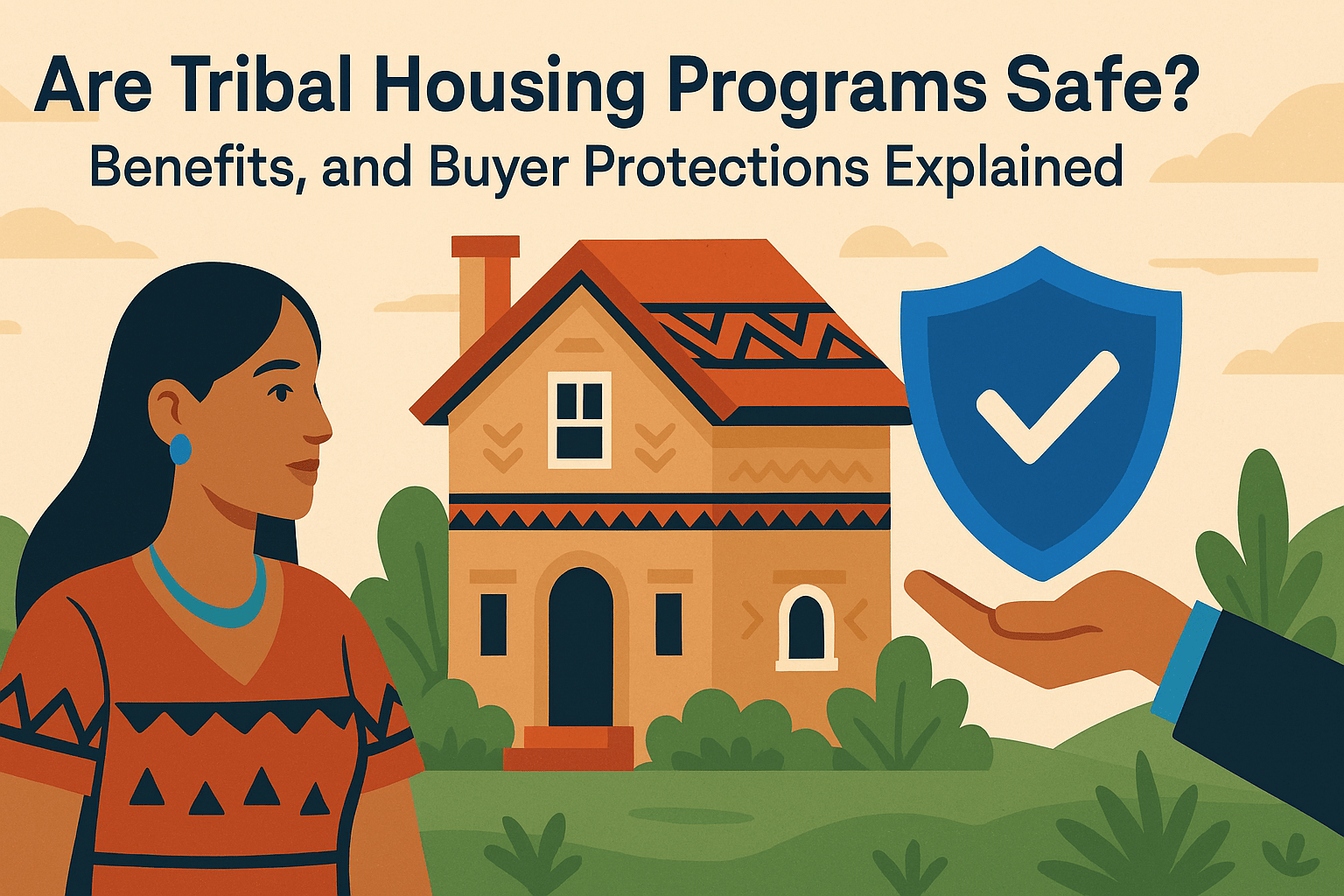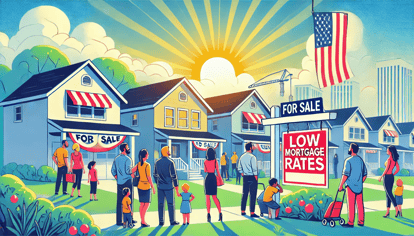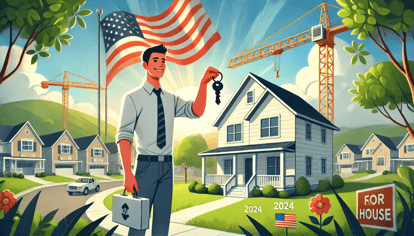When you hear the term tribal housing program, you might wonder: Is this legit? Is it safe? Will I be protected like I would be with a regular mortgage?
The short answer: Yes—tribal housing programs can be just as safe, structured, and legally protected as FHA or conventional mortgages. You just need to understand how they work.
Here’s what you need to know:

What Is a Tribal Housing Program?
Tribal housing programs are homeownership initiatives sponsored or managed by federally recognized Native American tribes or tribal entities.
In many cases, these programs help underserved or credit-challenged buyers access homes using alternative financing structures—often when traditional lenders say no.
One example is the Earned Equity Program, where a tribal housing agency purchases a home on your behalf using an FHA loan.
You then live in the home under a long-term agreement, make monthly payments, and eventually own it.
How Tribal Housing Programs Work (and Why They’re Legit)
These programs may look different than a standard mortgage, but they’re built on the same legal and financial backbone, including:
Many tribal programs—like the Earned Equity Program—rely on FHA 203(b) mortgage loans to purchase the home. These are the same government-backed loans used by millions of homeowners across the U.S.
2. Recorded Legal Agreements
Your rights as a homebuyer are protected through recorded agreements—like a lease-purchase or homeownership contract filed with the county. This gives you a legal, documented interest in the home.
3. Title Insurance & Appraisals
Just like in a conventional mortgage, tribal housing programs use title companies, third-party appraisals, and hazard insurance to protect the buyer and the lender.
4. Waiver of Sovereign Immunity
Tribal entities like the Tule River Homebuyer Earned Equity Agency (TRHEEA) waive tribal immunity in certain cases—like disputes related to title or mortgage servicing.
This ensures buyers and lenders have legal recourse in the same court systems used for traditional real estate transactions.
What Protections Do Homebuyers Get?
When participating in a tribal housing program, you’re protected by:
-
Transparent payment terms
-
Legally binding contracts
-
FHA property standards
-
Standard disclosures and closing documents
-
Recorded interest in the home
-
The ability to build equity and eventually own
In many cases, these programs go a step further—offering more flexibility and individualized underwriting for buyers who don’t fit the standard mortgage box.
Why People Choose Tribal Housing Programs
-
Credit score too low for a mortgage?
-
Self-employed with non-traditional income?
-
Using an ITIN instead of a Social Security number?
-
Just starting over after life changes?
Tribal housing programs offer a real path to ownership when traditional loans aren’t an option—without sacrificing safety or protection.
Bottom Line
Tribal housing programs are not risky, fly-by-night, or second-class options.
They’re carefully designed, legally sound, and often built around federal FHA guidelines—with the added benefit of helping buyers who need an alternative path.
If you’re considering one, ask the same questions you would ask in any real estate transaction—but rest assured, you are protected.
With over 50 years of mortgage industry experience, we are here to help you achieve the American dream of owning a home. We strive to provide the best education before, during, and after you buy a home. Our advice is based on experience with Phil Ganz and Team closing over One billion dollars and helping countless families.


 By
By  Edited by
Edited by 







